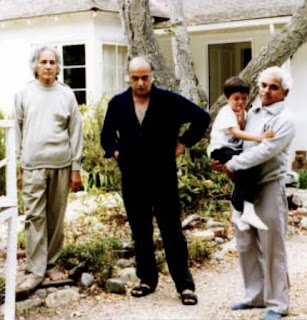Introduction

‘I have no message for mankind.’ ‘Why a biography of me?’ asked U.G. when I first expressed my desire to write the story of his life. ‘Tell me, how would you go about writing the biography of a person who says he has no story to be told? If my life story is never told, the world would be none the worse for it. For those who delight in reading biographies my story would be disappointing indeed. If they are looking for something in my life to change their lives for the better, they haven't got a chance. You can fit my life neatly into that rhyme for children “Solomon Grundy”. That, in a nutshell, is yours, mine and everybody's story. There's no more to it than that.’ ‘What are you, U.G.?’ asked the eighty-four-year-old Swiss lady, Valentine de Kerven, ten years ago over lunch. She had been with U.G. for over twenty years. Most of us at the table stared blankly at her. Her question is the same question asked by all those who have come in contact with U.G. The friend who was in...